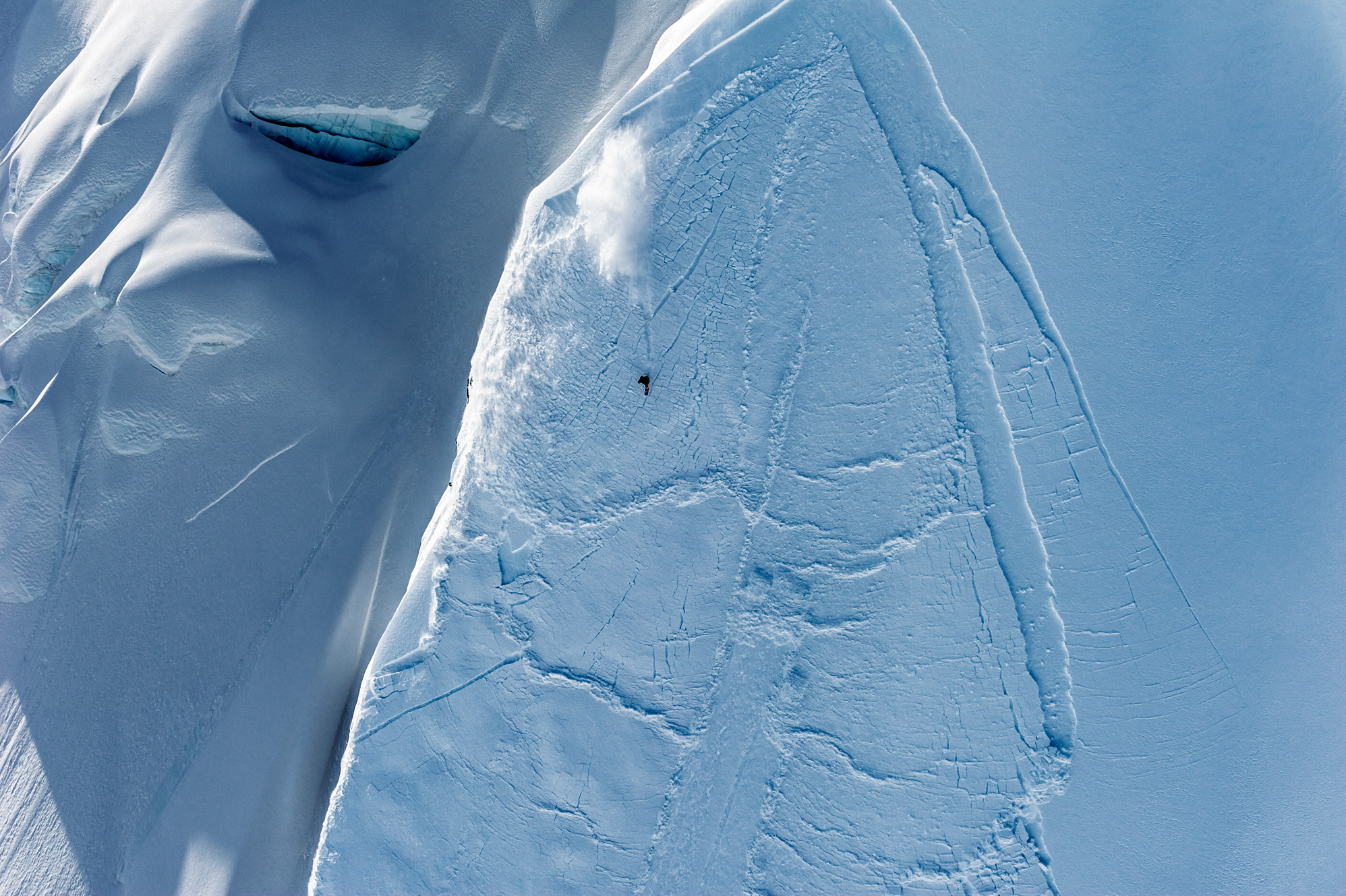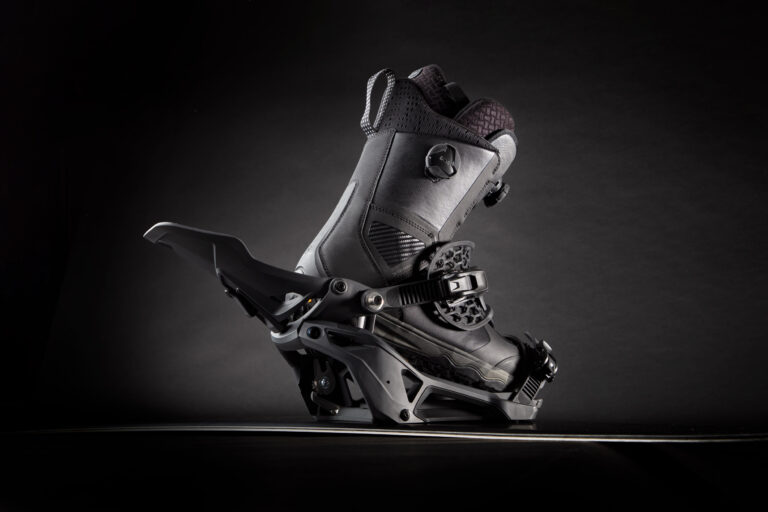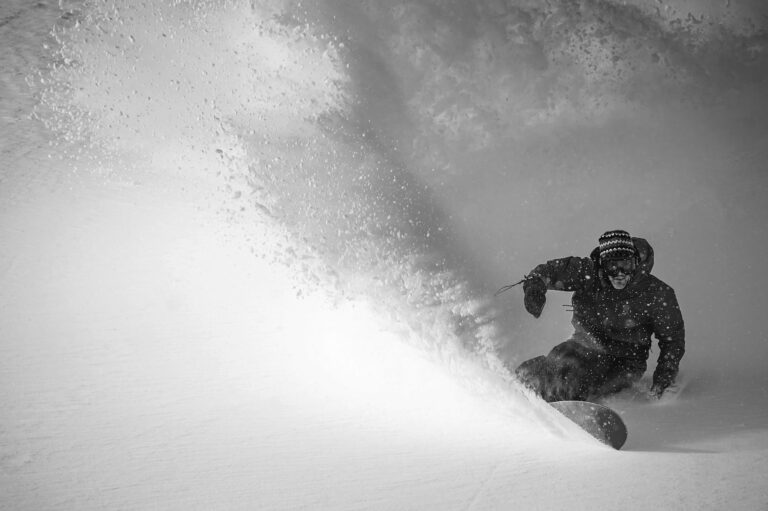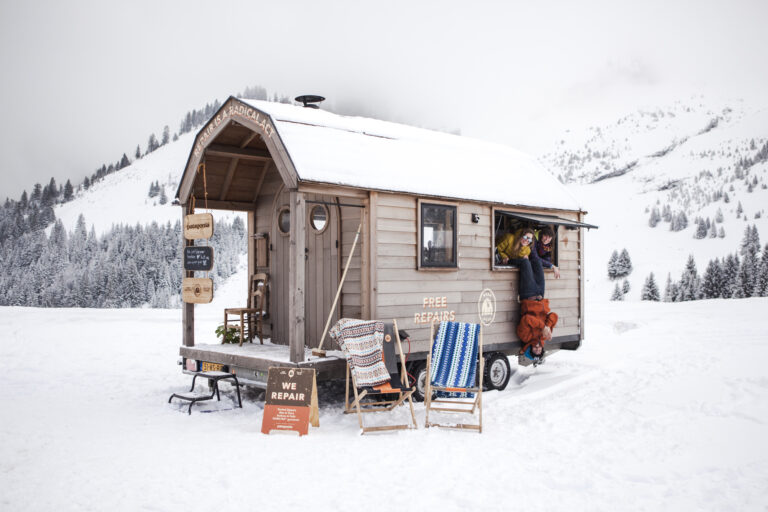Above: Victor Daviet’s Great Escape, photo by Oli Gagnon
A couple of weeks ago Patagonia announced that the Personal Inflation Vest (PIV) they’ve been developing for big wave surfing will make its way to market this spring. It’s an amazing piece of kit, essentially a vest that sits under a wetsuit with an attached CO2 canister that inflates when triggered, but it will only be available to those who’ve passed the BWRAG Big Wave Safety Course, plus additional training with Patagonia themselves.
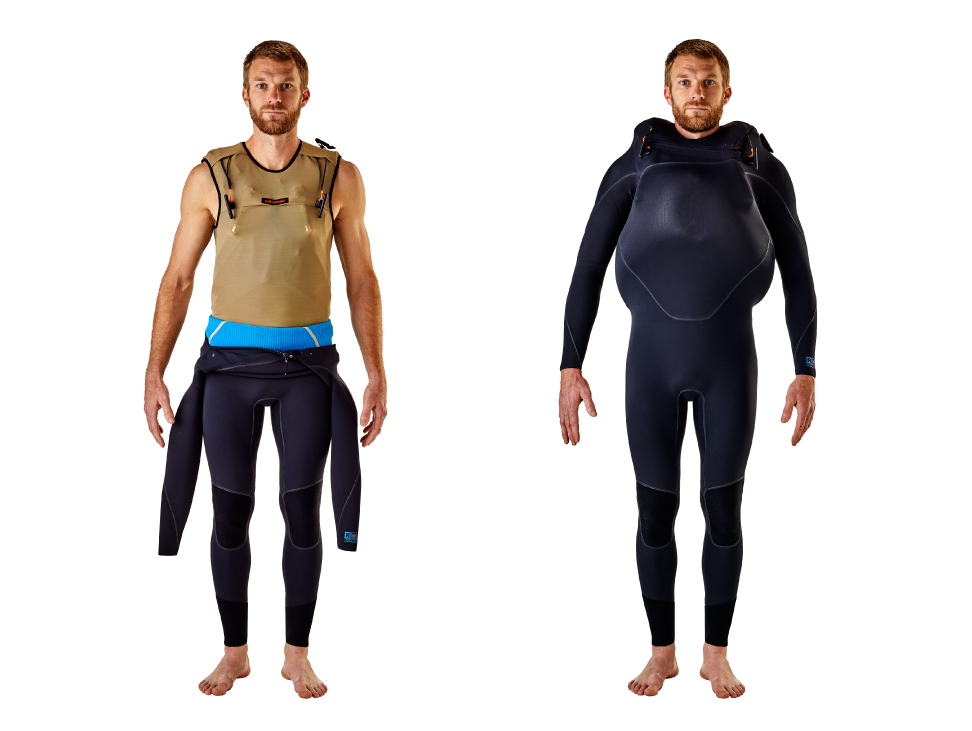
It’s a responsible move from the company, utilising technological developmeantss alongside promoting proper training and up-to-date knowledge and techniques. Just as wearing a helmet doesn’t make you invincible, an extra buoyancy aid might increase your chances of survival should everything go wrong, but is no substitute for having the knowledge to avoid getting into potentially dangerous situations altogether.
Patagonia ambassador and product tester Mike Pietsch himself says that he hopes younger surfers don’t fall into the trap of assuming that because you’ve bought the latest gear, you’re automatically safe.
“So, our question today is: should the same apply to backcountry safety equipment?”
So, our question today is: should the same apply to backcountry safety equipment? Specifically, ABS avalanche packs. They’re virtually the same technology, and are also a last minute chance at increasing your odds of survival, rather than a total failsafe.
Don’t get me wrong: it is amazing how far the available equipment has come on, but when you combine the increasing number of people enjoying backcountry pursuits and three years of sketchy snowpack conditions on the trot in Europe, you’d hope people would arm themselves with knowledge as well as gadgets.
I live in the mountains and endeavour to stay as informed as possible, following avalanche reports closely, planning options for a day snowboarding accordingly and taking the correct gear off piste. I’m far from a perfect mountaineer or anything even approaching a backcountry guide, but it’s always scary on a powder day to see legions of people blissfully unaware and unprepared riding through sketchy terrain or avalanche debris, above terrain traps or other people.
It’s even scarier to meet up with a group of friends who should know better on a category four day (defined as ‘high avalanche danger’) and see the majority without backpacks but still prepared to go and ride whatever. This happened to me a couple of weeks ago, and upon asking why they didn’t have their kit on them a few responded that they don’t like riding with a backpack. A couple even deliberately had transceivers on, but no shovel or probe – search and rescue times take about three times longer, and past the crucial fifteen-minute burial time if the rescue party doesn’t have these tools. I’ve even literally heard the words “that looks sketchy, but I’ve got my ABS on” whilst out on the mountain. Face. Fucking. Palm.
Being blunt, the above all demonstrates ignorance, and proves that technology alone isn’t enough when faced with attitudes and beliefs like this.
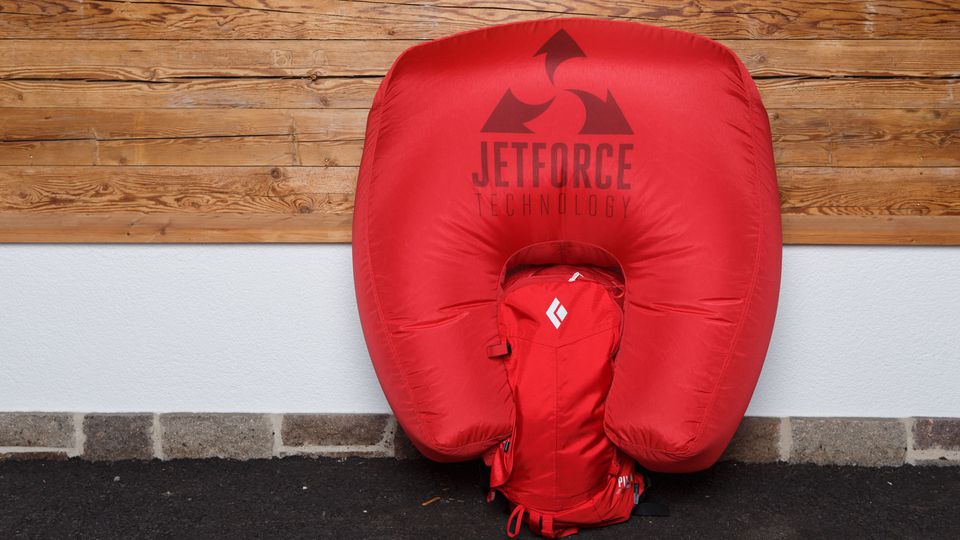
It begs the question, is it moral for a product to make us feel safe when in fact our lack of knowledge and training leaves us exposed? Should ABS packs, avalungs and the like be sold only top those with certified avalanche training?
“Should ABS packs, avalungs and the like be sold only top those with certified avalanche training?”
Probably not, as I’d personally feel all types of wrong denying safety equipment to someone who it could help, even if I knew they were deluded, and the accessibility (and danger) of backcountry snowboarding makes it a slightly different beast to big wave surfing. Jones are one of the brands that might have a solution, with exemplary safety articles and labelling across their promotional materials and products.
It’s a complex and multi-faceted question that we at Whitelines feel that we don’t have a definitive answer to, but that it should definitely be up for debate. Do you think certain safety equipment should require certification to purchase? Or should everything be freely available to anyone, as it currently stands?

